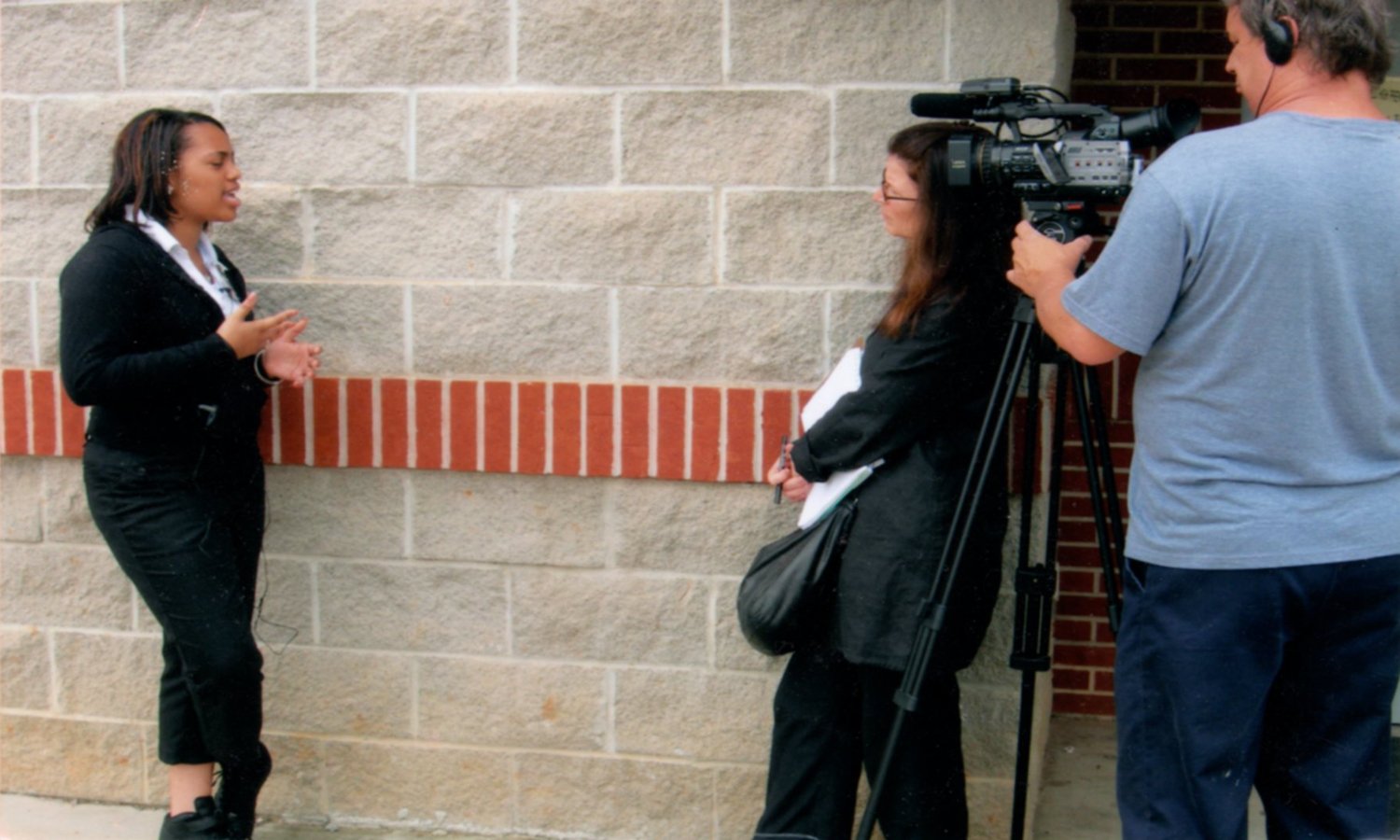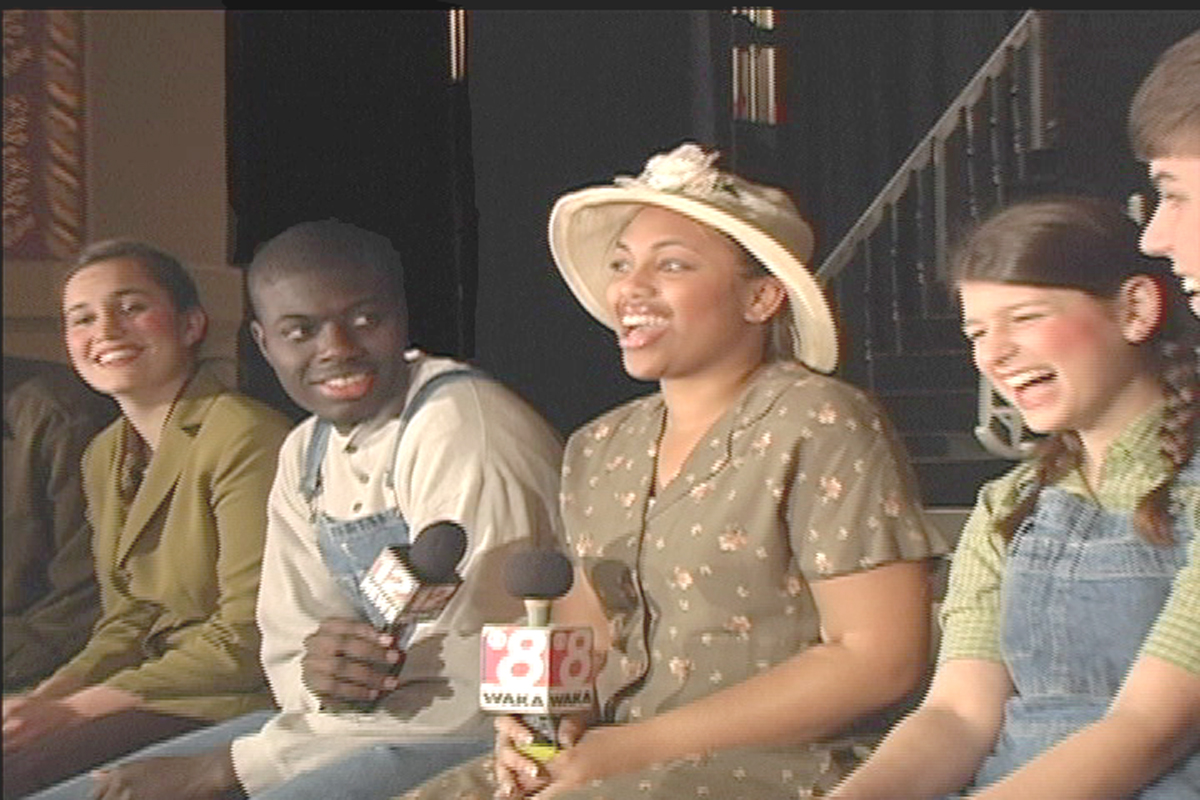More than 55 years since its publication, Harper Lee's To Kill A Mockingbird still resonates. Filmmaker Sandra Jaffe grew up in Alabama, where the 1960 best-selling novel is set. In 2006, Jaffe set out to find out why the book remains so popular today. She spoke with public figures—including television host Katie Couric, Congressman and civil rights activist John Lewis, law professor Charles Ogletree, Equal Justice Initiative Founder and Executive Director Bryan Stevenson, and G. Douglas Jones, who prosecuted the reopened case against two former Ku Klux Klan members charged, and eventually convicted, in the killing of four young black girls in a Birmingham church bombing in 1963—as well as teachers and students from two Birmingham-area high schools (one predominantly black, one predominantly white) who came together across geographic and racial lines to perform a play based on the book.
We spoke with Jaffe, whose film airs February 3 at 8pm on PBS' World Channel (check local listings) and streams free after it airs until March 5.
Facing History and Ourselves: To Kill a Mockingbird is listed again and again as one of the most influential books of all time. Do you remember the first time you read it?
Sandra Jaffe: I actually can't pinpoint the very first time I read the book. I think I saw the movie first. The book was published in 1960, but I would have been too young to read it then. The movie came out in 1962, but didn’t premiere at home in Birmingham until spring of 1963. But when it did, it was huge because the two kids who played Scout and Jem in the movie were from Birmingham. It was an Alabama story. I probably read the book some time soon after that, in high school. I have had it with me ever since.
What was it like growing up in Birmingham in the 1960s?
There were colored and white water fountain signs, "white only" signs on buses. When Martin Luther King and the Southern Christian Leadership Conference demonstrations started in the spring of 1963, we weren't allowed to go downtown anymore, which is where we used to go to the movies on Saturdays. The grown-ups used to say, "There's trouble downtown. It's too dangerous." I grew up in a Jewish household, and maybe because of that we were more aware in some ways of what was happening. We were also targets of discrimination. There was a bomb attempt at the synagogue where I went to Sunday school a few years before the 1963 Birmingham church bombing. Growing up at a time when George Wallace was governor, I felt a lot of shame about being from Alabama. When I left in the '70s to come to college in Boston, I think I held on to To Kill a Mockingbird as a way to align with something about Alabama that was positive.
What inspired you to make a film about the book’s enduring popularity?
I knew why To Kill a Mockingbird was important to me. I have a personal connection to the story because I grew up in Birmingham. But over the years I became more and more aware of how frequently the book was mentioned in popular culture and in the media—parents who named their kids after characters in the book, names of rock bands, references in movies and comic books. I wanted to know why it was so important to all these other people, and why is it still so important today.
 Jaffe (right) on set interviewing a student at Fairfield Preparatory High School in Fairfield, Alabama, about the lasting importance of Harper Lee's classic novel.
Jaffe (right) on set interviewing a student at Fairfield Preparatory High School in Fairfield, Alabama, about the lasting importance of Harper Lee's classic novel.And what answers did you discover as you conducted interviews and documented the efforts of the two groups of high school educators and students who came together near Birmingham to put on a production based on the book?
The first thing I did when I decided to make the documentary was visit a high school classroom in Boston that was doing a unit on To Kill a Mockingbird. I asked one of the students if there was anyone in the book that he could relate to. He said, "Yes. I can relate to Tom Robinson because I am from Saudi Arabia, and when the terrorists attacked, I was accused of being a terrorist. I was unjustly accused like Tom Robinson." And I thought, "Wow. Okay. This does transcend color. It is a universal feeling, the fear of being targeted because of who you are rather than what you've done." What Harper Lee so powerfully captured was how horrible it is to have no rights, to be judged by the color of your skin, or your class, or your disability, or anything that sets you apart.
How did you learn about the two Birmingham high schools that were collaborating on the production of To Kill a Mockingbird?
I went down to Monroeville, Alabama, and watched the play being put on by a group called The Mockingbird Players, and then I wanted to know who else was putting on the play. I found out that my high school was, and I called the drama teacher, who I did not know. She laughed and said, "And you are wondering how we cast the black characters, aren't you?" I said, "Well, yeah. I was kind of wondering that." And she told me that my high school, situated in one of the wealthiest and whitest communities in the country, would be collaborating with an all black high school, which I would soon learn had no theatre department or even auditorium. The only thing I could think was, "I wish I could have participated in something similar."
 The high school cast members of the "To Kill a Mockingbird" production discuss their experiences coming together across racial and geographic lines.
The high school cast members of the "To Kill a Mockingbird" production discuss their experiences coming together across racial and geographic lines.Why?
It is essential to your own humanity, as well as to the health of the community, to be around people who are different from you. To me, growing up in the south in the '60s, it would have made the world more real, and I think that's what the kids doing the play got from their experience—the knowledge that you will, and should, encounter all kinds of people in the world, and it will make your life much richer. When you’re only living and interacting with people who are exactly like you, it's too easy to fear "the other" and dismiss them as if their experience doesn't matter. The Mountain Brook High School drama teacher, Pat Yates describes the collaboration as an exercise in empathy, and I think that's the idea.
How do you hope the film inspires audiences—both in thought and action?
I hope that as people watch these two high schools cross the divide of race and class, that other communities will be inspired to collaborate with groups that they have not interacted with, groups that they are segregated from by virtue of where they live or how their community is designed. I hope that after seeing the film, young audiences will have a better understanding of what happened during the civil rights era, and that they will advocate and act for change. I hope audiences will see the film and think about events like the 1963 Children's Crusade in Birmingham, and the Freedom Rides, and the march from Selma to Montgomery, and realize that we still have a lot of battles to wage, and that we have to be vocal in order to get change. I hope that people will examine disparities in our education and justice systems and realize that they are connected—that all young people are entitled to the same opportunities in education, and that all people are entitled to equal justice under the law.
Do you teach To Kill a Mockingbird? Facing History's Teaching Mockingbird guide offers a fresh approach to the classic that engages students in the issues central to the novel—and their own lives—including race, class, gender, justice, and moral growth. Download today.

